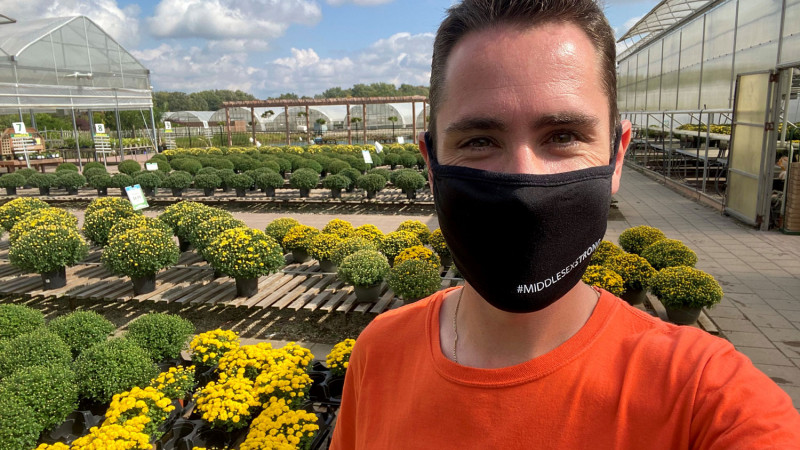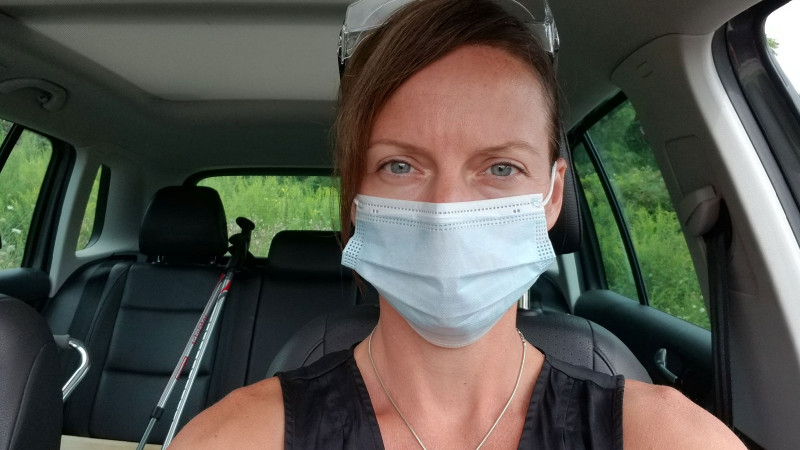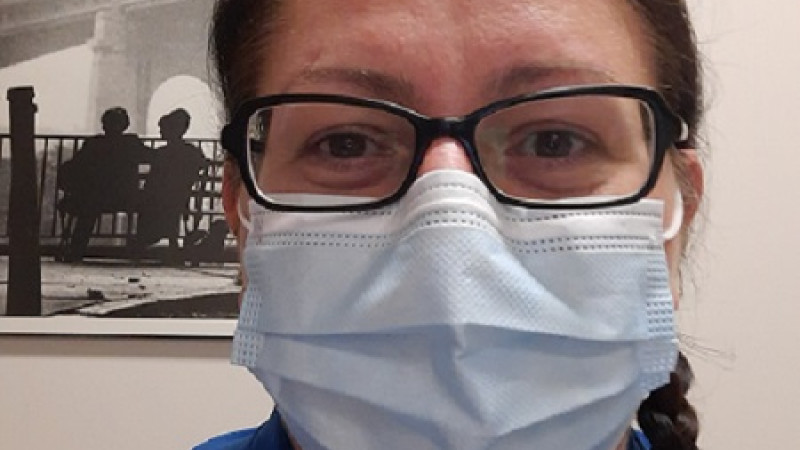Profound impacts
For a long time, Jessica was unable to see her family. “It was months. I missed being able to visit, I missed hugs, and I always worry about their safety.”
As a Spiritual Care Practitioner, Jessica feels challenged by the pandemic in several ways.
“Having to wear a mask has made me more appreciative of the nuances of how we communicate. I have to communicate more intentionally these days ‒ through the expressiveness in my eyes, the movements of my hands, and speaking louder to be heard.”
Jessica has discovered a newfound appreciation for the fine intricacies of the human face as a mechanism for communication. “I look forward to the time when I can once again read the macro and micro expressions on someone’s face, and let my face respond in kind.”
Jessica is very hopeful that the community will emerge from this pandemic with a deep-rooted commitment to taking care of those who are most vulnerable. “If we can continue to love our neighbours, and we do this consistently through our words, actions and where we invest our time, energy and finances, then we will be doing well.”
It’s easy to become burdened or overwhelmed by the pandemic. It’s important, says Jessica, to remind ourselves the world is much bigger than COVID-19. “It’s good to remember that beauty, joy, gratitude, generosity, love, kindness, creativity, and wonder all continue to exist. We still have the opportunity to live out those values we hold most sacred. In the midst of our tiredness and uncertainty, it becomes even more important to find ways to act on what we believe. Continue to be generous, continue to be kind, continue to be creative. Stare up to the sky and marvel at it’s blueness. Beauty still exists.”
The role of Chaplain usually has Jessica working closely with patients. The toughest adjustment during the pandemic, she says, has been the lack of physical contact. “I am missing the therapeutic power of touch. It’s those moments of physical touch that can have a profound impact on someone’s wellness - where a patient reaches out for a handshake or a fist bump, or where a patient is in distress and wants someone to sit close to them as they cry. That has been incredibly challenging.”



